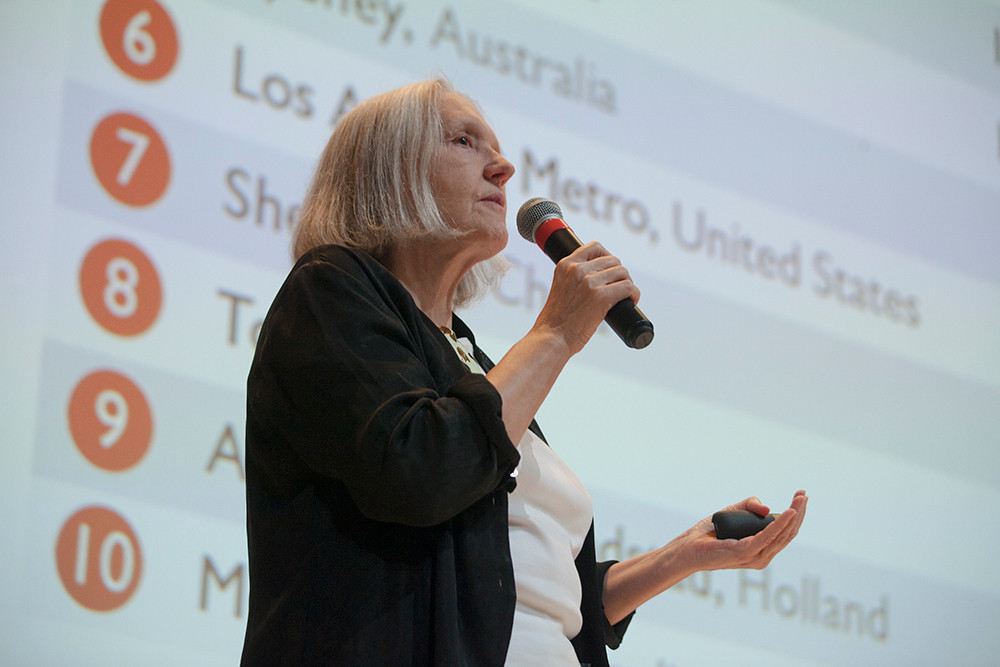Videos: Keynote Speakers
The Main project of the 6th Moscow biennale included a series of keynote speeches. Major researchers offered their take on the question of “How to Gather?”

Saskia Sassen
Saskia Sassen is approaching the question of “How to gather?” along two vectors. First, asking “Who are we, the citizens?” in regard to our contemporary society that is shaped by inequalities and imbalances, she explores a possible redefinition of citizenship where the individual can trespass vertical hierarchies of power and connect with like-minded others. With a focus on Eurasia here, the second leading question “What are we witnessing?” is posed concerning current migrations and what they entail for people.
Ackbar Abbas
Ackbar Abbas’ keynote for the biennale derives from his research on Chinese culture and identity and his practice as a Professor in the United States for Comparative Literature. Through the framework of “volatility” Abbas offers a reading of current global conditions such as financial crises and their impact on cinematic and artistic departures. In a time where no values of one cultural perspective can provide a frame of reference for an adequate understanding of the world we live in anymore, this keynote elaborates on the question: “Which epistemes could offer leads to the dynamic societal, cultural and economic contexts we find ourselves in?”
Michelangelo Pistoletto
Michelangelo Pistoletto realised both a large outdoor work ‘Third Paradise’ and a keynote speech, titled ‘the Work on the World’. Both start from his ‘third paradise’ notion that can be seen as an artistic aspiration to let the classical thesis/antithesis thinking transcend itself into an opulent engagement with the world, inspired by art.
Mariana Mazzucato
Professor Mazzucato explains why the discussion of policy as ‘intervention’ in the ‘market' is a myth. Markets are outcomes of different of interactions between heterogeneous agents (including different types of public and different types of private organizations). She emphasises why this requires much more attention on the types of interactions, and the types of organizations. In particular, she argues why the role of public policy must change from being about ‘fixing’ market failures, to one of actively shaping and creating markets. And the danger of not understanding this active role, given the societal challenges we have in front of us: battling climate change, inequality, and financial market reform.
Ulrike Guérot
Ulrike Guérot’s keynote for Moscow Biennale 2015 is rooted in her research and publications on the european idea such as the European in Republic and the European Democracy Lab. The lab advocates for civic engagement for a res public europaea, a transnational concept of Europe that could re-think political and economical entities and their connections. With thinking the question “What are the conditions of the european idea?”, Ulrike Guérot touches upon the timeliness of concepts such as the nation state, its definitions and international relations.
Ines and Eyal Weizman
“Between the Dissident and the Activist,” the contribution by Ines and Eyal Weizman, was realised as a conversation-play where both present architecture-based cases and put them into relation. Broken illusions after the big bang of 1968 which were followed by the sagging of communism as a unifying idea shaped the landscape of political forces from which the difference between the two notions. Dissidence (as an oftentimes non-political act of stubborn negotiation, withdrawal and non-participation) is interpreted as an antithesis to the notion of Activism (as in the nervous, agitated and engaged.)
Pascal Gielen
Dealing with cities as starting points and nodes of an international civic space, Pascal Gielen explores the capacities to perform a common city on the crossroads of art, politics and public life — driven by a search for a new international civic sense. “How is public space made in a continuous activation?” and “What is the relation between urban politics, artists and the organization of the city?”— these are the leading questions along which the parameters for new spaces were discussed.
Invention of Eurasia: Geography or "special path”
The panel-discussion Invention of Eurasia: Geography or “special path” between Boris Dolgin (politilogist, scientific editor of Polit.ru), Evgeniy Gontmakher (economist), Dmitry Venkov (artist, awardee for Kandinsky Prize 2012) and Vasily Zharkov (politilogist, Moscow School of Social and Economic Sciences) is moderated by Ilya Budraitskis and approaches the notion of Eurasia from an economic and political point of view. Over the last century, the idea of ”Eurasia" has remained one of the most prominent and controversial in Russian political discourse. We can say that so far it exists as if in two poorly compatible interpretations. The first is rooted in philosophical and political legacy of the 1920s, when Trubetskoy described Eurasia as a space that denies borders, colonialism, racial inequality and exclusion logic inherent in the European nation-states. Second — on the contrary, it requires a coincidence of Eurasia with a certain public-political project, to insist on their values and interests, which are fundamentally different from the actual Europe and Asia.
How, by whom and why was “invented” Eurasia? To what extent it is a fact of geography and economy, and to what extent — the product of intellectual speculation? What political, economic and cultural significance may have an idea of Eurasia today? Is it merely a tool in the hands of the elite, or can inspire civic movement from below?
Yanis Varoufakis
Once again, the financial crisis in Europe and its consequences for the people of Greece remind of the vulnerabilities of the global world. How could we rethink these issues from the “cultural” point of view? When we look at economics, we read it as if it is an independent series of facts, not affected by culture. The former finance minister of Greece argues this is a grave mistake.